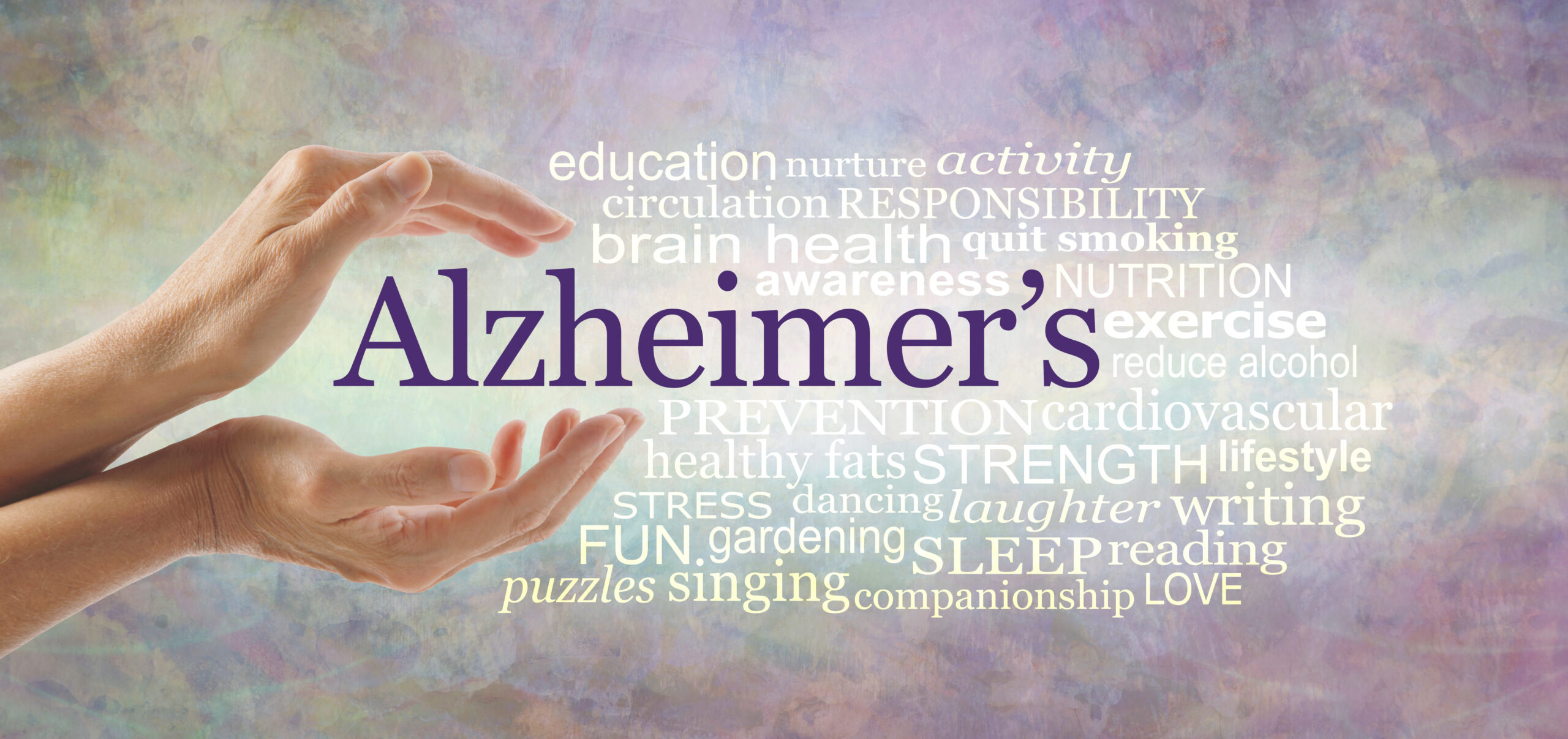
Introduction
June is Alzheimer’s and Brain Awareness Month—a time dedicated to understanding and coping with the impact of Alzheimer’s and dementia on individuals and their families. For caregivers and family members, comprehending the nuances of these conditions is crucial in providing the best care and support.
In this blog post, we will explore the effects of Alzheimer’s on the brain, the importance of early detection, coping strategies, and the significance of Brain Awareness Month.
Understanding the Impact of Alzheimer’s and Dementia on the Brain
Alzheimer’s disease is a progressive neurological disorder that affects the brain’s nerve cells, leading to memory loss, cognitive decline, and behavioral changes. It is the most common cause of dementia, a group of symptoms affecting memory, thinking, and social abilities severely enough to interfere with daily life.
Common symptoms include:
- Memory loss that disrupts daily life.
- Difficulty in planning or solving problems.
- Confusion with time or place.
- Trouble understanding visual images and spatial relationships.
- New problems with words in speaking or writing.
- Withdrawal from work or social activities.
- Changes in mood and personality.
The progression of Alzheimer’s varies from person to person, but it typically follows three stages—mild (early stage), moderate (middle stage), and severe (late stage).

The Importance of Early Detection and Seeking Professional Advice
Early detection of Alzheimer’s can significantly impact the management of symptoms and improve quality of life. Recognizing the early signs allows for timely intervention, potentially slowing the disease’s progression.
Benefits of Early Detection:
- Access to treatments that may help manage symptoms. Seek out the expert care from a doctor specializing in Geriatrics.
- Opportunity to participate in clinical trials.
- Time to plan for the future, including legal and financial matters.
- Enhanced ability to make lifestyle changes that promote brain health.
Seeking professional advice is essential for an accurate diagnosis. A healthcare provider specializing in dementia can conduct comprehensive assessments, including medical history, cognitive tests, and brain imaging, to determine the presence of Alzheimer’s.
Dementia is a complex condition that requires specialized care. While there isn’t a one-size-fits-all answer, several types of doctors can help manage dementia and cognitive decline. Here are some options:
- Neurologists: These doctors specialize in brain-related conditions and are often the go-to experts for diagnosing and treating dementia. They have expertise in understanding the underlying brain causes of cognitive decline1. (Health US News.)
- Geriatricians: Geriatricians focus on the health and well-being of older adults. They are knowledgeable about age-related conditions, including dementia, and can provide comprehensive care tailored to seniors’ unique needs.
- Psychiatrists: Psychiatrists can diagnose and treat mental health conditions, including dementia-related behavioral and emotional changes. They play a crucial role in managing symptoms and improving quality of life.
- Primary Care Providers: Some primary care doctors have experience in diagnosing and managing dementia. They can initiate evaluations, provide ongoing care, and coordinate with specialists as needed.
Strategies for Coping and Providing Support
Caring for a loved one with Alzheimer’s can be challenging, but several strategies can help in managing daily routines and providing effective support:
Practical Tips for Caregivers:
- Create a Routine: Establish a daily schedule to provide structure and reduce confusion.
- Simplify Tasks: Break down tasks into simple, manageable steps and offer clear instructions.
- Use Visual Cues: Labeling items and using visual aids can help with memory and orientation.
- Maintain Communication: Use short sentences, maintain eye contact, and be patient when communicating.
- Ensure Safety: Adapt the home environment to prevent accidents, such as installing locks on windows and removing tripping hazards.
Support Groups and Community Resources:
Connecting with support groups and community resources can provide emotional support and practical advice. Many organizations offer counseling, training programs, and respite care services to help caregivers manage their responsibilities.
Personal Story and Testimonial
One of our first clients, Mr. and Mrs. D, shared their heartwarming yet challenging experience with us. Mrs. D was diagnosed with Alzheimer’s disease, and Mr. D’s sole wish was to keep her at home with him, avoiding nursing homes or senior care facilities. Mrs. D actually contacted us when she noticed she was having memory issues. She had stopped going to church as she feared not being able to remember the names of her friends she had known for years.
Mrs. D’s condition progressed rapidly, leading to severe memory issues and behavioral problems. She often did not recognize her husband, had outbursts of fear, and tried to leave the house frequently. Despite these challenges, with dedicated 24/7 care and support, we were able to honor Mr. D’s wish.
Unfortunately, the emotional toll on Mr. D was immense, and he passed away first, likely from the heartbreak of seeing his beloved wife struggle. Mrs. D continued to receive compassionate care until her passing but at the end she was moved to a nursing home on hospice care. A great deal of safety measures and “gadgets” were needed to make this a safe situation, but mission accomplished!
This story was also heart wrenching as their daughter had passed away at a young age and they became the guardians of their 2 grandchildren. At the time of all of this they were in their early twenties. This was a great deal for these young people to manage as well as endure. They did a fantastic job.
Another client with Alzheimer’s faced severe health issues due to her inability to communicate her needs, leading to hospitalization from a urinary tract infection. She always said, “I don’t have to go.” She would go several hours without using the restroom. With a structured toileting schedule and continuous support, we helped her maintain better health and dignity with no further urinary tract infections and support throughout her days of dealing with Alzheimer’s Disease. She continued to tell everyone she “did not have to go” but taking her to the bathroom on a regular basis she always “went’ once she was helped to the toilet.

Expert Advice and Quotes
Introducing expert advice adds credibility and depth to our discussion. We have many expert resources listed for you in our resource section at the end of the blog post.
Tina Baxter, GNP-BC and owner of Baxter Professional Services shares her expertise in an interview with us on the 3 Ds. Dementia, Delirium and Depression and how it affects our aging adults. How do you know the difference? You can watch the video HERE from our recent Senior Care Summit 2024 or in the resource section at the end of this blog post.
The Significance of Brain Awareness Month
Alzheimer’s and Brain Awareness Month is more than just a calendar event; it is a movement to raise awareness, promote understanding, and encourage research and advocacy. By educating ourselves and others about Alzheimer’s, we contribute to a more compassionate and informed society. Consider a double dip in getting some healthy exercise in plus supporting Alzheimer’s Disease with an organized Alzheimer’s Walk in your area.
How You Can Help:
- Participate in awareness campaigns and events.
- Support research initiatives and organizations dedicated to Alzheimer’s care.
- Share your experiences and knowledge with others to foster a supportive community.
Conclusion
Understanding and coping with Alzheimer’s is a challenging yet rewarding journey. By recognizing the impact of the disease, seeking early detection, and employing effective caregiving strategies, we can improve the quality of life for our loved ones and ourselves.
At Your Nurse Advocate Consulting, we are committed to supporting caregivers and families through every step of this journey. Join our community to access valuable resources, share your experiences, and find the support you need.
Join our community to support caregivers.
Together, we can make a difference in the lives of those affected by Alzheimer’s and dementia.
Thanks for stopping by and spending a few minutes with us. We look forward to seeing you back here soon.
Pam and Linda
Your Nurse Advocate
“Compassionate Care for Aging Parents, Peace of Mind for the Adult Children.”
Resources:
Your Nurse Advocate Consulting Free Resources
Building a Care Team: What is the Boot Camp All About?
Boot Camp: “Blueprint to Building a Care Team on a Budget”
Sheri Fairman “Dementia Care Solutions” “The Changing Relationships When Dementia is Involved.”
“Dementia Perspectives, Yours and Theirs”
“Understanding the Three D’s; Dementia, Depression, and Delirium”
National Institute on Aging: Understanding Different Types of Dementia
National Institute on Aging: Frequently Asked Questions on Dementia and Alzheimer’s






